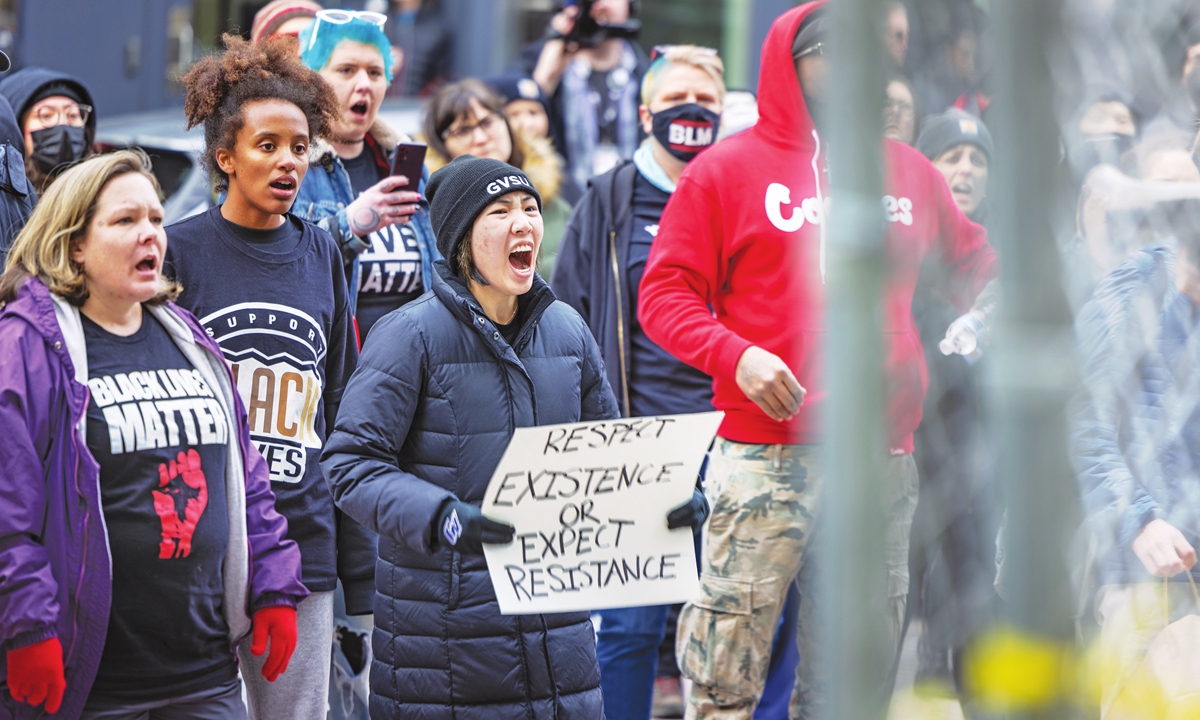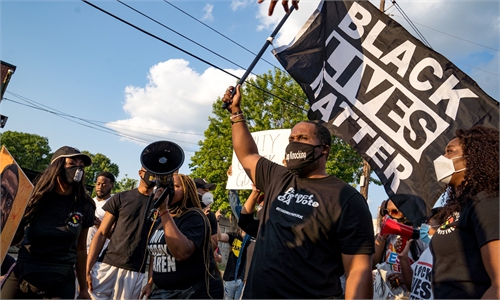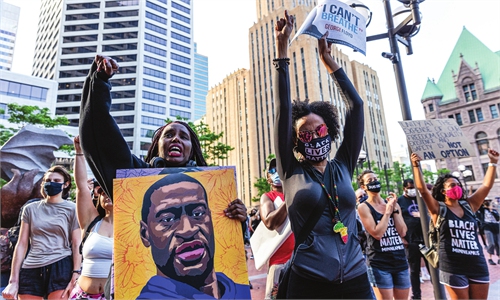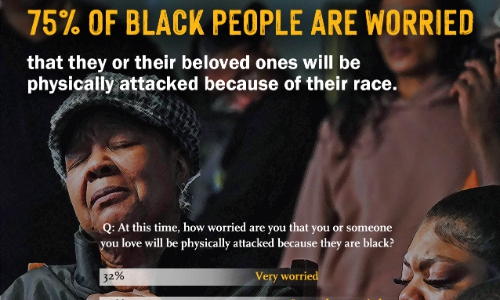US lacks data on race, ethnicity to track systemic racism: report

People gather during a Black Lives Matter protest march in Grand Rapids, Michigan on April 14, 2022. They protested in front of the downtown police headquarters after police released video of the shooting death of Patrick Lyoya. Photo: VCG
A dearth of data in many countries, including the US, on the race and ethnicity of people arrested or killed by police presents a major barrier to tackling systemic racism, France's state-owned international news television network France 24 reported.
After the May 2020 murder of George Floyd, a 46-year-old unarmed black man, in Minneapolis by a white US police officer, a group of UN experts said it was "vital" to make systemic racism "visible" around the world.
In the US, there is no centralized system to collect statistics across more than 18,000 law enforcement agencies, France 24 reported, citing UN investigators.
But according to Collette Flanagan, who founded Mothers Against Police Brutality after her black son Clinton Allen was killed by police in Dallas, Texas in 2013, a black person was "2.5 times more likely to be shot" to death by police in the US.
Her son was unarmed, yet the white police officer who shot him seven times "perceived my son as a threat," Flanagan told UN experts. And the police officer escaped all criminal and civil accountability for killing her son.
It is a "crucial need to collect, analyze, use and publish data, disaggregated by race or ethnic origin," said Yvonne Mokgoro, a former South African judge who heads the group of UN experts.
For her, racial profiling and excessive use of force during and after interactions with law enforcement officials and the criminal justice system are reported but not shown in official statistics.
It is "an essential first step to highlight the magnitude of systemic racism against Africans and people of African descent," she said.



